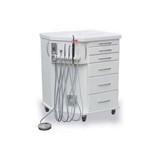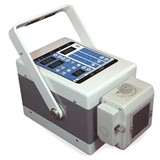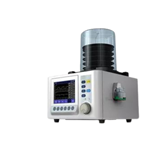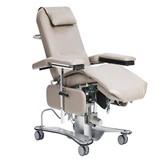In 2019, Egemen International have supported a study at Haydarpasa State Hospital in Istanbul, Turkey with the first version of Life Control Disposable Mechanical Ventilator. This study was conducted by Mustafa Ahmet Afacan-1, Mehmet Özgür Erdogan-2,Abdullah Algin-3,Miraç Kirci-1, and Sahin Colak-1.
- Department of Emergency Medicine, University of Health Sciences, Haydarpasa Numune Training and Research Hospital, Istanbul, Turkey
- Department of Emergency Medicine, Bahcesehir University, Istanbul, Turkey
- Department of Emergency Medicine, University of Health Sciences, Umraniye Training and Research Hospital, Istanbul, Turkey
Please see the summary of the study below.
Aim
Equipment used for in-hospital patient transfers should be safe for the patient, inexpensive, and easy to use. Disposable mechanical ventilators are a reasonable choice for in-hospital transfers. Life-control Portable Resuscitator (LPR) is a gas-powered automatic resuscitator designed for short-term ventilation during the transport of critically ill mechanically ventilated patients. The aim of this study was to investigate the efficacy and safety of, and complications associated with, the LPR.
Materials and Methods
A total of 77 (age > 18 years) critically ill mechanically ventilated emergency service patients transported to in-hospital units with an LPR were included in this study. Categorical variables are presented as frequencies (numbers and percentages), and continuous variables are presented as means ± standard deviation with corresponding 95% confidence intervals (CIs). Paired-sample t-tests were used to analyse normally distributed variables.
Results
Vital signs showed no significant difference after transport. After transport mean pH, PaCO2, and lactate levels of all patients increased statistically significantly and approached normal range values. PaO2 levels increased significantly after transport. HCO3, PIP, and BE showed no significant difference after transport. Device-related complications during transport included O2 cable disconnection (11.6%), device failure (2.59%), vomiting (1.2%), and extubation (2.59%).
Conclusion
In the study group, the LPR was reliable according to the vital signs and blood gas analyses, although these devices should be used only by skilled personnel due to the possible risk of complications during transport.






-160x160-state_article-rel-cat.png)









-160x160-state_article-rel-cat.png)














